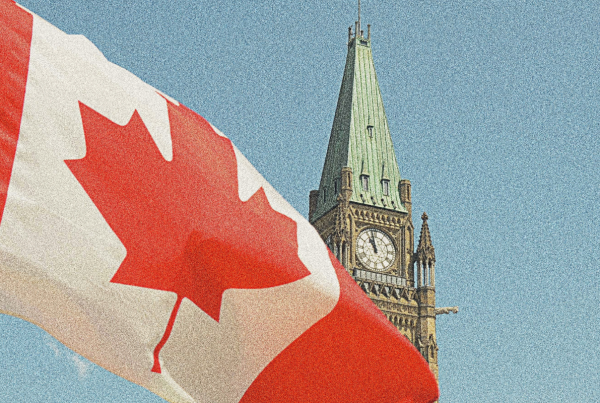L'ACLC sera à la Cour d'appel de l'Ontario (ONCA) cette semaine pour intervenir dans le cas de Ontario c. Animal Justice.
Cette affaire est un appel interjeté par l’Ontario contre une décision de la Cour supérieure de 2024 qui a invalidé des parties importantes de la réglementation provinciale limitant le travail d’enquête des journalistes infiltrés et des lanceurs d’alerte dans les fermes d’élevage. La réglementation contestée menace d’imposer de lourdes amendes à quiconque accède aux locaux agricoles sous de faux prétextes. Le tribunal de première instance a conclu que certaines dispositions de cette réglementation violent de manière déraisonnable la liberté d’expression.
En appel, l’Ontario conteste que ses règlements soient même assujettis à Charte contrôle, au motif qu'elles s'appliquent à des propriétés privées.
La position de la CCLA est qu'aucun lieu, public ou privé, n'est catégoriquement exclu du champ de protection de la CharteLes limites imposées par l’État à la liberté d’expression sont soumises à Charte même si elles s'appliquent à une propriété privée. Nos observations porteront sur les raisons pour lesquelles le lieu d'expression ne peut pas être utilisé par l'État pour créer Charte-zones franches.
Ce point est important. Si l'ONCA accepte l'argument de l'Ontario, ce modèle de réglementation pourrait être utilisé pour créer Charte-des zones franches sur d’innombrables autres « propriétés privées » où le travail d’infiltration et les révélations contribuent à la transparence publique.
Le gouvernement de l'Ontario fait également valoir qu'un comportement qui constitue un délit civil est nécessairement exclu du champ d'application de la loi sur l'immigration et la protection des réfugiés. Charte protection en vertu de l'art. 2(b) (liberté d'expression). Les implications de cet argument sont que l'État pourrait imposer des conséquences pénales à l'expression, sans Charte un examen minutieux, simplement parce que la même expression peut entraîner des conséquences civiles entre parties privées.
La position de la CCLA est que la responsabilité délictuelle potentielle en common law ne peut pas restreindre la protection constitutionnelle des libertés fondamentales garanties par la Charte. Autrement, il y aurait différents niveaux de protection constitutionnelle selon la province dans laquelle la contestation constitutionnelle est portée.
La CCLA remercie David Rankin et Ankita Gupta d'Osler, Hoskin & Harcourt LLP pour leur excellent travail. pro bono représentation dans ce cas.
À propos de l’association canadienne sur les libertés civiles
L’ACLC est un organisme indépendant à but non lucratif qui compte des sympathisant.e.s dans tout le pays. Fondé en 1964, c’est un organisme qui œuvre à l’échelle du Canada à la protection des droits et des libertés civiles de toute sa population.
Pour les médias
Pour d'autres commentaires, veuillez nous contacter à media@ccla.org.
Pour les mises à jour en direct
Veuillez continuer à vous référer à cette page et à nos plateformes de médias sociaux. On est dessus Instagram, Facebook, Twitter et Ciel bleu.





